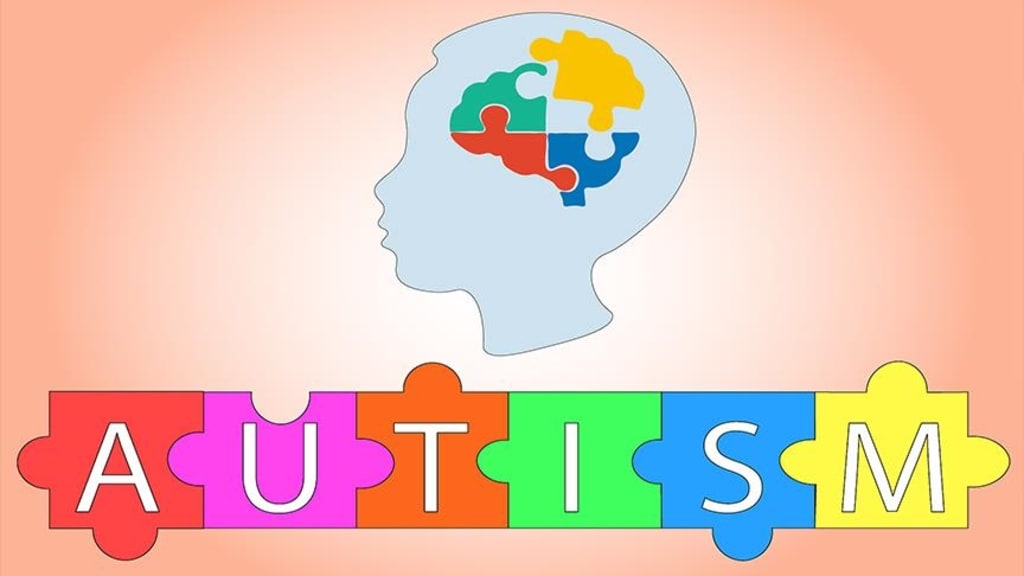Parents of Adult Children with AUTISM
AUTISM

The 3 Challenges for Parents of Adult Children With Autism
28-year-old Alex has advanced autism. The school didn't turn out for him after four attempts, and it has been difficult for him to hold a task for more than a half year. He feels lost and alone in his ensuing sorrow and tension. He becomes suddenly angry at his folks (and takes his dissatisfactions out on them) since, where it counts, he knows there is a waitlist of individuals who will adore him regardless of his mother and father are at their highest point!
As a parent mentor for individuals battling grown-up youngsters, guardians frequently counsel me to more readily deal with the requests of their grown-up kids with autism range problems (ASD). I've heard numerous accounts during my north of thirty years as an analyst about the massive passionate aggravation that grown-up kids on the range (and their folks) need to confront.
Indeed, there are grown-up kids with ASD who can carry on with useful and fulfilling lives. However, regularly, the difficulties with thinking and feeling in manners that are typically not in a state of harmony with how a great many people experience the world around (and inside) them–since they are living in a different inward world–can be extremely overpowering and unpleasant to grown-ups on the range.
Autism in Adult Children Is a Growing Problem
Individuals are progressively determined to have ASD. As per the Centers for Disease Control and Prevention, in 2018, one out of 44 kids who matured eight years in the United States was related to autism range problem (ASD). Consistent with its name, the difficulties of autism do fall on a range. This implies the kinds of indications, blends of them, and their seriousness runs broadly between the individuals who are determined to have them. While there is variety in the battles of grown-up kids with ASD, there are a few articulated generally normal battles.
As indicated by the Diagnostic and Statistical Manual of Mental Disorders, Fifth Edition (DSM-5), joined with my clinical perceptions more than thirty years, the fundamental indications of autism range issue (ASD) normal in grown-up kids include:
Think that it is difficult to get what others are thinking or feeling.
Getting exceptionally restless with regards to social circumstances.
Being fixated on a theme and fanatically discussing it.
Think that it is difficult to make companions or like to be all alone.
Medically introverted dormancy, which is the idea that when individuals with ASD quit doing an errand, they struggle to continue it. Further, whenever they have begun chipping away at an errand or task, it very well may be truly hard to stop.
Appearing to be obtuse, impolite, or not keen on others without significance.
Think that it is difficult to say how they feel.
Taking a few things in a real sense.
Not getting social "rules," like not talking over individuals,
Keeping away from the eye-to-eye connection.
The Three Challenges for Parents of Adult Children With Autism
1. Failing to focus on the Challenges of ASD
I have worked with numerous kids and grown-up kids who give solid indications of ASD, yet they (and their overwhelmed guardians) will quite often disregard that it is at the center of the difficulties connected with it. This can happen for different reasons:
Pediatrics has strengths, for example, neurodevelopmental inabilities. Interestingly, grown-up kids with ASD ordinarily don't get support administrations because there's no financing. Tragically, this implies there is an absence of grown-up autism-related administrations. Intensifying this issue is that the quantity of mentally unbalanced individuals arriving at adulthood will just develop.
ASD-related battles become the "not-really new ordinary" over numerous years, and the guardians and grown-up kids feel worn out and worn out from the horde of related stressors and difficulties.
ASD had been analyzed, however, guardians limited or denied it ("We would rather not furious them by saying anything").
The grown-up kid denies or limits their ASD because they long to feel more neurotypical ("All I have is some ADHD").
They were never officially determined to have ASD. Frequently I have seen circumstances where ASD "was recommended by somebody at their school en route," yet this never prompted a conventional finding.
2. Imparting About Necessary Tasks and Getting Them Done
Exploring the requests of the neurotypical grown-up world can be overwhelming for some grown-up youngsters (and for their folks as the couriers who get "destroyed"). They struggle to accomplish objectives that would assist them with being more autonomous.
Less than 20% of undergrads with autism had graduated or were even on target to graduate five years after secondary school. That number goes up to 39 percent after the understudies are seven years out of secondary school.
As per the Social Security Administration, mentally unbalanced range problems can influence an individual's capacity to think and hold a task. Autism is frequently set apart by the failure to focus on anything outside of the medically introverted individual's prompt advantages and exercises. Occupations that require an individual to keep pace or to stay with a given errand for a drawn-out period are by and large past the capacities of somebody with exemplary autism or serious medically introverted range problems.
Challenges with inspiration pose a potential threat for grown-up kids in the medically introverted range. As referenced above, medically introverted inactivity hinders starting errands, continuing them when interfered, and finishing them.
Recognize whether it is, "Can't or Choose Not." Slow down, venture back, and put forth a valiant effort to impartially inquire as to whether your grown-up youngster needs to manage a particular battle all alone or with your backing. Don't simply rush in and empower.
3. Challenges Regulating the Three Big Emotions: Anxiety, Sadness, and Anger
A mentally unbalanced individual might think that it is difficult to comprehend their feelings and those of others, including their disappointed guardians.
Feelings of others are deciphered by unpretentious messages sent by look, eye-to-eye connection, and non-verbal communication. Grown-up kids on the range might end up disappointed by not following these feelings in others.
Since feelings are regularly missed or confounded by a medically introverted individual, others may erroneously see them as discourteous or barbarous.
Instructions to Help Adult Children With ASD
Given the intricacy of difficulties confronting grown-up kids on the range, there is no handy solution. What concerned, strong guardians can do, notwithstanding, is to:
Embrace the gifts that accompany their grown-up youngster being neurodiverse and be fixed on their battles to diminish a feeling of accidentally communicating fault or disgrace.
Do what you can to help your grown-up kid on the range seek guidance and mental consideration whenever justified.
Being patient and compassionate to their disparities doesn't be secure in considering your youngster's ASD to be essentially something negative.
The greatest backings for your grown-up with ASD originate from acknowledging where the limits are between what you can strongly do and not do to assist them with adapting to stressors, what they need to do to acknowledge specific demands, and proceeding to urge them to transcend dissatisfactions to endeavor to survive/oversee hindrances.
SUMMARY:
The CDC recognized one out of 44 kids at age 8 in the U.S. with autism. As they arrive at adulthood, their folks battle to help them adapt.
Grown-up youngsters with ASD battle to start and finish jobs while inside battling, yet they are frequently considered to be not mindful.
Persistence and comprehension versus reflexively empowering, go far for guardians to assist their grown-up youngsters with autism.
About the Creator
Bogdan Munteanu
I AM A WRITER. Writing provides the best sort of release, it's a different form of expression. I love to write about cryptocurrencies, metaverse and love!






Comments
There are no comments for this story
Be the first to respond and start the conversation.